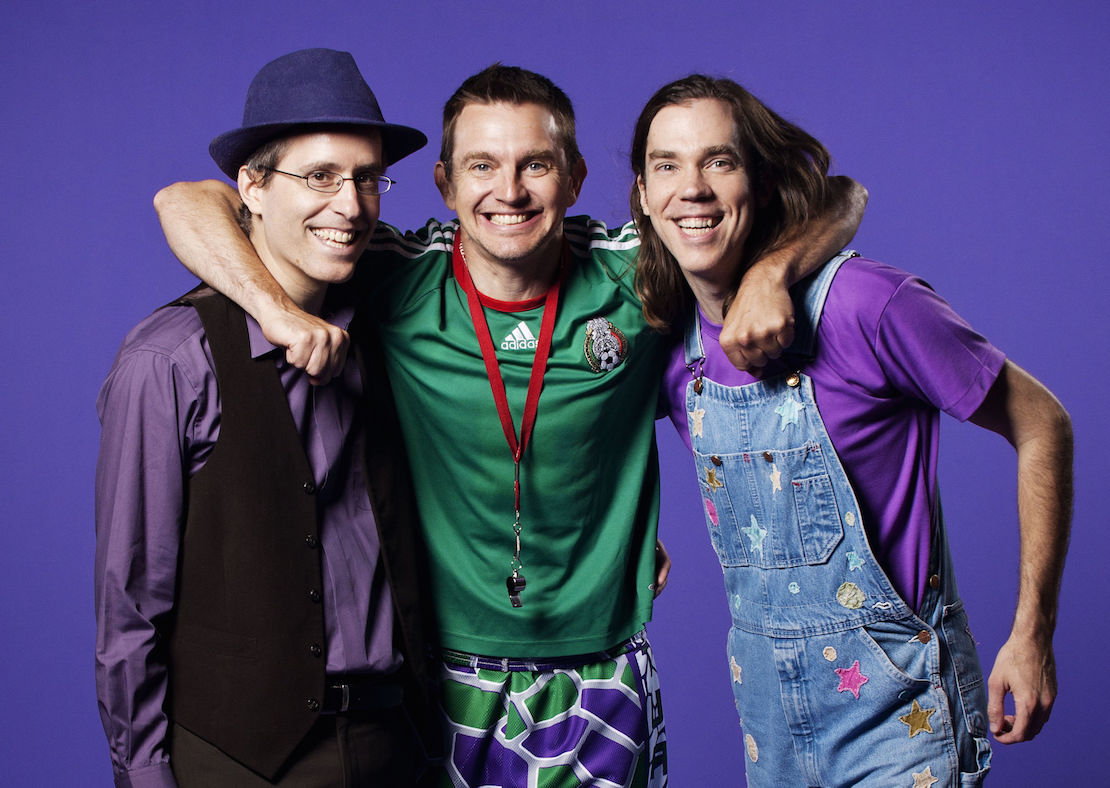Andrés Salguero isn't the only musician making music for families in both English and Spanish, but his route to that calling might be more unusual than most. The South American-born musician made his way to the United States playing clarinet, and while he couldn't have anticipated making music for families as a career, he had recorded a kids' album long before he even moved to America.
I chatted with Salguero about his childhood, his entry into making kids music Dino O'Dell in Kansas City, how kids' musicians can have a long-term impact, and the dual nature of his audiences.
Zooglobble: What are your first musical memories?
Andrés Salguero: Singing and dancing… seeing my dad play guitar around the house. When I was six, I joined a folkloric group, a dancing and singing group. I made lots of friends in that. When I was 8, it was led by a famous writer, and she teamed up with a song writer and recorded an album. It was fun, but as a child, everything was new.
You grew up in Colombia -- how did you make it to Kansas City?
I got my Bachelors' degree in Colombia, and looked at options for my Masters' degree. Lots of those in the arts in Colombia look to Europe and America for those sorts of advanced degrees. So I sent in my tapes of clarinet performance to universities and got a full ride for a Masters in Fayetteville, Arkansas. From there, I applied and got into the Conservatory of Music and Dance at the University of Missouri-Kansas City and over six years got my Doctorate.
You got your start playing kids music with Dino O'Dell -- how did that happen?
In Fayetteville, it's 12% Hispanic. I played with Pablo Salveza, he played salsa, merengue, bachata. He was Chilean, the singer was from Cuba, some musicians were from Puerto Rico. It was different, because in Colombia, there were not so many different styles and backgrounds.
I was playing with Pat Conway who came in from Kansas City. He played with Dino and asked me to fill in for him [Pat] at a gig. I remember meeting Dino for the first time while Pat was playing at a salsa gig at a beautiful outdoor venue.
At that point, I'd already written some children's music, but working with [Dino] really got me into the scene. From him I understood the need for interaction and how to play with kids.
What made you want to play for kids full time?
I was always torn between playing my own music and that of others. I was always interested in creative writing -- I won a music composition award in 2000. Since then, I wanted to express myself, my own songs.
A few years ago, a relative of someone I was dating asked how I'd make a living do this. And I said "play my own music."
Did you read that piece on being a kids' musician by the member of The Que Pastas?
I did.
I liked that. You have to deal with the nicest people -- librarians, people who adore you, students. Classical music is very competitive. I play very specialized music -- contemporary avant-garde music. I'd go to festivals and see the same people. Fifty, two hundred people competing for the same spot.
This seemed like a viable way to make a career. It was also very important to me to reflect my own culture, represent my country and help others have a pleasant experience with another culture.
I understand why some people have fear of another culture, fear of the unknown. I wanted to introduce people to it in a friendly way.
Was that -- the desire to share culture -- something new?
Yes. In Colombia, I played folk music, but I also had a rock band, playing the Clash and the Sex Pistols. But moving here was a cultural shock, so I became interested in cultural identity. In Kansas City, for example, I produced a play with a playwright on the topic.
Coming here, I realized I was different. Colombia was homogenous, but here, people are different.













